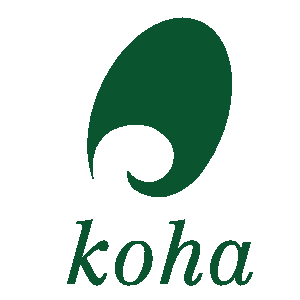As the demand for academic excellence increases in nursing education, nursing students often find themselves overwhelmed by assignments, clinical obligations, and the need to master both theoretical and practical skills. In response to these pressures, professional nurse writing services have emerged as a popular resource for students seeking assistance with essays, research papers, case studies, and other academic writing tasks. While these services provide valuable support, they also raise important ethical questions regarding academic integrity, personal accountability, and the role of external assistance in education.
This comprehensive analysis explores the ethical dimensions of nurse writing services, examining the potential benefits and risks associated with their use. It also offers guidelines on how students and educators can navigate these ethical concerns to ensure that writing services are used responsibly, promoting both academic success and personal growth in nursing education.
Understanding Nurse Writing Services
nurse writing services are designed to provide academic writing assistance to nursing students. These services typically offer help with a wide range of assignments, including:
- Essays and Research Papers: Assistance with developing topics, conducting research, organizing content, and ensuring proper citation.
- Case Studies: Support in analyzing clinical cases and applying nursing theory to real-world scenarios.
- Editing and Proofreading: Professional review of papers to improve clarity, grammar, and overall quality.
- Reflective Journals: Help with articulating personal insights and experiences related to clinical practice.
While these services are often framed as a way to improve writing skills and manage workload, they also raise ethical concerns, particularly when students use them in ways that undermine their learning or violate academic integrity.
The Ethical Benefits of Nurse Writing Services
- Enhancing Learning and Skill Development
One of the most positive aspects of nurse writing services is their potential to enhance learning and improve students' writing skills. For students who struggle with academic writing—especially those for whom English is not their first language—these services can provide valuable guidance.
-
Personalized Feedback: Professional writers and editors can offer targeted feedback on a student’s writing, helping them to identify areas for improvement. This kind of one-on-one guidance can be particularly beneficial for students who may not receive individualized attention in the classroom.
-
Skill Building: Writing services can help students develop important academic skills, such as critical thinking, research, and organization. When used ethically, these services can serve as a learning tool that empowers students to produce better-quality work independently in the future.
- Supporting Time Management
Nursing students often face heavy workloads, balancing academic responsibilities with clinical rotations, part-time jobs, and personal obligations. Nurse writing services can offer time-saving support, allowing students to manage their schedules more effectively.
- Stress Relief: By helping students meet deadlines and reduce the pressure associated with complex assignments, writing services can alleviate stress and help prevent burnout. This can have a positive impact on students' mental health and overall academic performance.
Ethical Risks and Concerns
Despite the potential benefits, the use of nurse writing services raises several ethical concerns. These concerns primarily center around issues of academic integrity, personal accountability, and the potential for misuse.
- Academic Integrity and Plagiarism
One of the most significant ethical risks associated with writing services is the potential for plagiarism. When students submit work produced by someone else as their own, they violate academic integrity policies, which can lead to serious consequences such as academic penalties, suspension, or even expulsion.
- Ghostwriting: Some writing services offer to complete entire assignments for students, essentially engaging in ghostwriting. This practice undermines the student’s own learning process and violates the principles of academic honesty. Submitting a paper written by someone else not only constitutes plagiarism but also deprives students of the opportunity to develop their writing and critical thinking skills.
- Dependency and Erosion of Accountability
Another ethical concern is the potential for students to become overly dependent on writing services, using them as a crutch rather than a tool for learning. This dependency can erode personal accountability, as students may begin to rely on external assistance for tasks they should be completing on their own.
- Undermining Personal Growth: Academic writing is a critical component of nursing education, helping students develop important skills that they will need in their professional careers. When students outsource this work, they miss out on opportunities for personal and intellectual growth, which can ultimately hinder their development as competent, reflective healthcare professionals.
Ethical Guidelines for the Use of Nurse Writing Services
To address these ethical concerns, it is important for both students and educators to establish clear guidelines for the responsible use of writing services. These guidelines should emphasize the importance of academic integrity, personal accountability, and the value of learning through the writing process.
- Using Writing Services for Guidance, Not Substitution
Students should use nurse writing services as a tool for learning, not as a way to avoid doing the work themselves. Writing services can provide valuable feedback, offer editing support, and help students improve their skills, but students must take responsibility for their own work.
-
Drafting and Feedback: One ethical approach is to use writing services for feedback on drafts that the student has already written. This ensures that the student is actively engaged in the writing process and is using the service to enhance their own efforts rather than replace them.
-
Learning from Examples: cheap nursing writing services also provide model papers or outlines that serve as examples for students. These examples can help students understand how to structure their papers and organize their ideas, but they should not be copied or submitted as original work.
- Transparency with Educators
Transparency is key to ensuring the ethical use of writing services. Students should be open with their educators about the support they are receiving and how they are using writing services to supplement their learning. Educators can play an important role in guiding students on the appropriate use of external help.
- Seeking Permission: In some cases, it may be appropriate for students to seek permission from their instructors before using a writing service, especially for major assignments. This ensures that both the student and the educator are on the same page regarding what is considered acceptable support.
- Avoiding Ghostwriting
Ghostwriting, or having someone else complete an assignment on a student’s behalf, is never an ethical practice. Students should avoid services that offer to write entire papers for them, as this constitutes plagiarism and undermines the educational process.
- Focus on Skill Development: Instead of using writing services as a shortcut, students should focus on using these services to develop their own writing and analytical skills. This can include working with writing coaches or editors who provide feedback and help students refine their own work.
- Adhering to Institutional Policies
Every nursing program has its own policies regarding academic integrity and the use of external assistance. Students should familiarize themselves with these policies and ensure that they are in compliance with them when using writing services.
- Honor Codes: Many nursing schools have honor codes that emphasize the importance of honesty and integrity in academic work. Students should adhere to these codes and use writing services in a way that aligns with the ethical standards of their institution.
The Role of Educators in Promoting Ethical Writing Practices
Educators play a critical role in helping students navigate the ethical dimensions of using writing services. By providing clear guidelines and fostering an environment of academic integrity, educators can help students understand the importance of personal accountability and the value of the writing process.
- Providing Writing Support
One way to reduce students’ reliance on external writing services is to provide more writing support within the academic program. This can include offering writing workshops, peer review sessions, and one-on-one tutoring to help students improve their skills.
- Creating Clear Assignment Guidelines
Clear and detailed assignment guidelines can help reduce the confusion and frustration that often leads students to seek external help. Educators should provide specific instructions on what is expected in terms of content, structure, and citation, ensuring that students have the tools they need to succeed on their own.
Conclusion
Nurse writing services offer valuable support to nursing students, helping them navigate the complex demands of academic writing. However, the use of these services raises important ethical considerations related to academic integrity, personal accountability, and the role of external assistance in education. By using writing services responsibly—focusing on guidance, skill development, and ethical transparency—students can benefit from these resources while upholding the values of honesty and integrity in their academic work.
Ultimately, nurse writing services should be viewed as a supplement to, rather than a substitute for, the hard work and dedication required to succeed in nursing education. When used ethically, these services can empower students to achieve academic success and develop the communication skills that are essential for their future careers as healthcare professionals.










